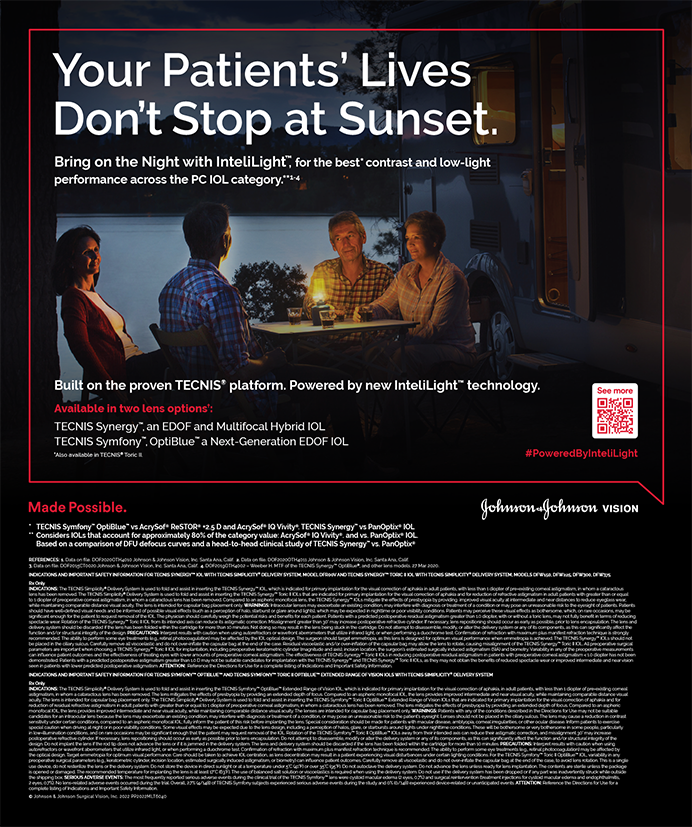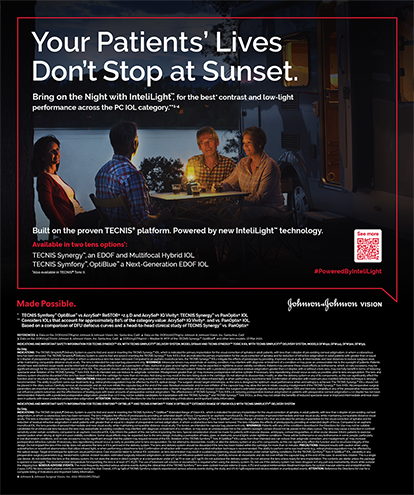What is the mission of the International Council of Ophthalmology (ICO)?
The mission of the ICO is to improve ophthalmic education worldwide and enhance care for patients with visual disorders throughout the world. To achieve this, we have worked with our member societies, paying particular attention to improving ophthalmic education in developing countries. The ICO has developed a variety of initiatives that give opportunities to ophthalmologists in developing countries that they would not otherwise have. For example, we have provided more than 450 fellowships to young ophthalmologists in developing countries. We also provide an annual examination program at various locations throughout the world for young ophthalmologists to measure their knowledge in comparison with others’. The ICO has organized courses on educational theory and practice for more than 700 residency program directors at 16 sites to help them enhance training of ophthalmology residents. With the Middle East Africa Council of Ophthalmology, we created a leadership-development program dedicated to ophthalmologists in Sub-Saharan Africa that focused on enhancing ophthalmic education, practice, and leadership training for younger ophthalmologists in this region. The group has now formed its own organization, the Africa Ophthalmology Forum, to support one another and provide leadership for ophthalmology in Africa. The ICO is supporting the development of regional ophthalmic training centers in Nigeria (Regional Catholic Mission Hospital network coordinated with University Eye Hospital, Ibadan, and supported by the Lavelle Fund), China (Peking University Eli Lilly Diabetic Eye Disease Center), and Slovenia (ophthalmology subspecialist training at University Eye Hospital, Ljubljana). We have also just announced that the ICO-Magrabi Cameroon Eye Center will soon be established in Yaounde. One of our largest and longest-running programs is the World Ophthalmology Congress (WOC). We have increased the frequency of the WOC to every 2 years, with a very successful congress this past June in Berlin, Germany. More than 13,000 participants from 145 countries attended. WOC 2012 will be held February 16 to 20 in Abu Dhabi, United Arab Emirates.
How has working in developing countries and with ophthalmologists around the world informed your approach to teaching?
Working in developing countries has focused our attention on the great needs of ophthalmologists in these countries and the great challenge to improve ophthalmic education in theses regions. Knowledge of conditions in developing countries shows us how fortunate developed countries are in their training and practice.
How have the rapid advances in technology in the past decade changed the way you conduct educational seminars and programs?
There is now a greater tendency for hands-on courses that teach new technologies. Technology has also encouraged us to evaluate the educational process beyond the time spent in a lecture hall. We are particularly interested in furthering the use of new technology to more effectively and economically reach ophthalmologists in developing countries who may not have the funds to travel to congresses and meetings.
What has been the toughest decision that you have had to make as a leader of an ophthalmic society?
As the first chief executive officer of the American Academy of Ophthalmology (1976-1992), I faced many challenges, but none nearly as tough as the ICO’s challenge of providing for the needs of ophthalmologists in developing countries. Working with world ophthalmologists to systematically address the millions of people who have preventable or treatable visual loss is the toughest situation I have faced.
What is your most memorable international experience?
I have many, but one that remains with me is being protected by machine guns while touring ophthalmology programs in Nigeria with ICO leaders. We were there to address that country’s need for educational materials, equipment, electricity, facilities, and subspecialists for training. My tour of the educational programs throughout Nigeria helped me to understand the depth of need and the challenges that exist in responding to it.
This article is reproduced with permission from Cataract & Refractive Surgery Today Europe’s May 2010 issue.


